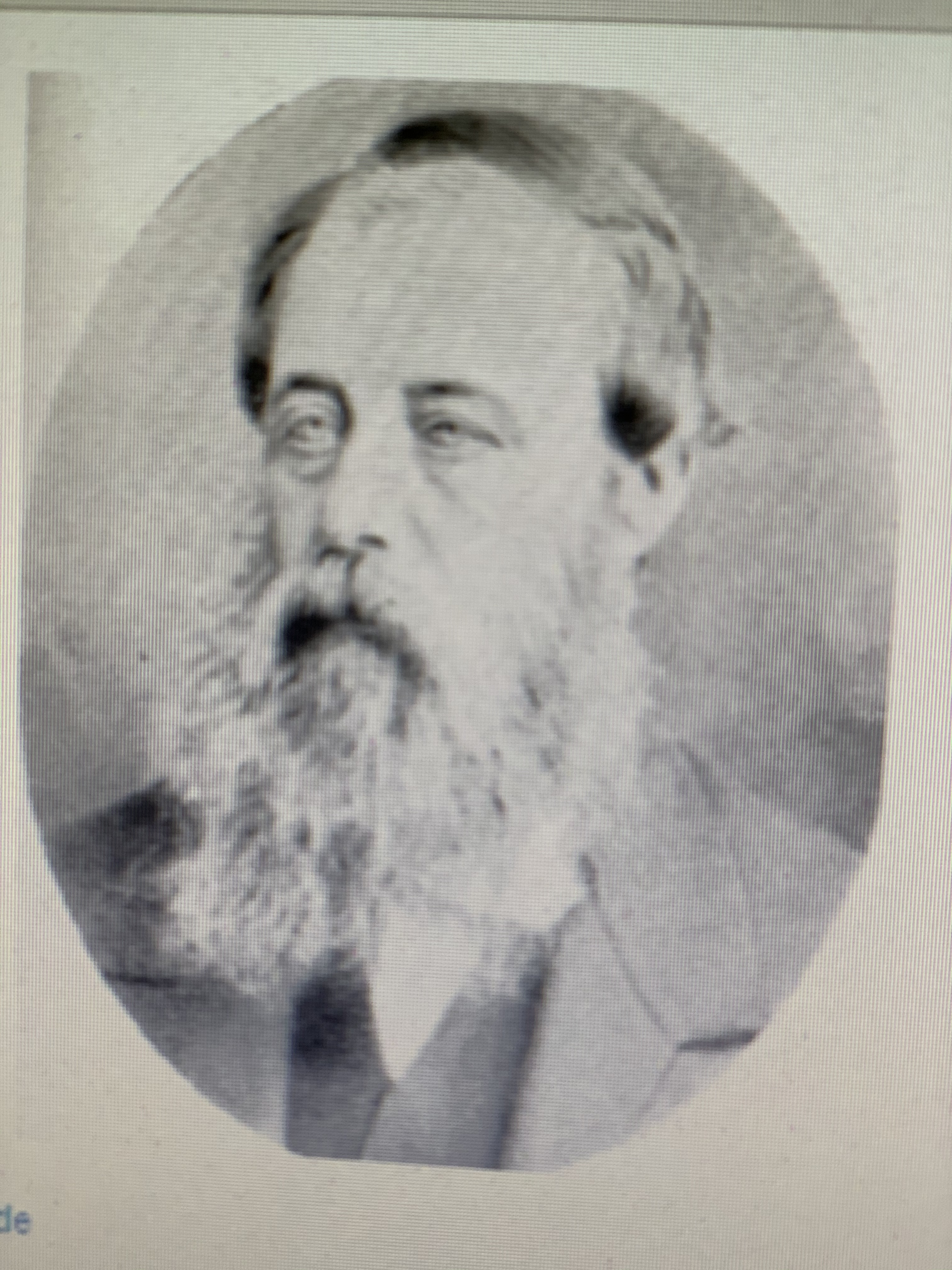Above: Photo of Dr Charles Plumley Childe (eldest son of George Frederick Childe) . (Photo downloaded from
https://www.google.com/search?q=Dr+Charles+Plumley+Childe
Below: Photo of The Reverend Professor George Frederick Childe. (Photo downloaded from 'The History of the South African College', by Professor W. Ritchie).

The Reverend Professor George Frederick Childe, M.A., a student at Christ Church Oxford, took a first-class in Mathematics in 1837. Since 1846 he was an Assistant at the Royal Observatory at the Cape. He was therafter appointed as the new Mathematical Professor in April 1852, to the South African College (SAC/later SACS). In that same year, he gave classes at Bishops, until 1854. According to John Gardener's history of Bishops (Bishops 150): 'this was the sort of arrangement made with a number of staff members until as late as 1910'. His sons were Charles Plumley, and Letterstedt Frederick, two 'distinguished ODs'.
Both his sons attended Bishops. The family resided close to the school. Both went on to distinguish themselves in the medical field.
Dr Charles Plumley Childe OD (very top photograph/main photograph) B.A., F.R.C.S (Eng.), M.R.C.P. (Edin.), the eldest of the two siblings, was at Bishops between 1869 - 1876. According to the records we have in the Archives, at school he took first place in B.A. (Literature) and a second in B.A. (Science). Tragically he died whilst on holiday with Mrs. Childe, at Monte Carlo on 30th January 1926, after a sharp attack of influenza and pneumonia, in his 69th year. Dr. Childe, who practised for many years at Southsea, England, had a distinguished career both at Bishops and thereafter. In 1923, he had the honour of being President of the British Medical Association. The following was taken from one of the many English papers that made reference to Dr. Childe's death: 'He was a very skilful surgeon, and widely known as a cancer specialist. Born in South Africa, he was educated at Bishops and afterwards at Cambridge and King's College Hospital, London. About 33 years ago he became a general practitioner at Portsmouth, but later specialized as a surgeon. He made a study of cancer, and as a result of a recent book which he wrote on that disease, he received, just before leaving home for his last holiday, an invitation to attend an international conference on, cancer, which is to be held in America during the current year (1926). In Portsmouth he did much valuable public service. For some years past he had been Chairman of the Corporation Health and Housing Committee, and took a leading part in improving local housing conditions by clearing away slums. He had also served as chairman of the management committee of the Portsmouth Hospital, an institution in which he took a great interest, and of which he was honorary consulting surgeon. During the war he was Lieutenant-Colonel in command of the Fifth Southern General Military Hospital.' The photograph at the top of this article is of Dr CP Childe.
The second of the two brothers was Letterstedt Frederick Childe (OD) who ended up being Major General L F Childe. He was at Bishops from 1869-76. He took the first place in Matric in the Colony in 1876; and in the following year, having gone to further his studies at the SAC, was awarded the Gold medal for that year. Like his brother he had a distinguished career. An obit. in the 'British Medical Journal' of January 1916 [
Br Med J. 1916 Jan 1; 1(2870): 35 -
https://www.ncbi.nlm.nih.gov/pmc/articles/PMC2346789/?page=1 ] is worth reading especially now when the world has been struck by the Novel Corona virus, it says about Major General Dr Childe: 'To him belongs the credit of being the first to recognise and describe the pneumonic form of plague ...'
Tragically, he died whilst on a visit to his brother CP at Portsmouth, on 14 December 1915. Unfortunately we were unable to locate a photograph of Major General Childe (if there is one and someone has it the Archives would be grateful to receive it).
Note: Donal MacIntyre's record on p. 70 in 'A Century of Bishops', attributes the scholastic places mentioned, to LF and not CP, yet the cards in the Archives, do so, for CP.
MacIntyre writes about LF Childe: 'In India, as a medical research professor, he made the important discoverythat pneumonic plague is a variety of the bubonic form'. (p. 70). McIntyre writes further: 'A medical contemporary, at Bishops with him, wrote: "He was easily the clverest boy in my time" '. (p. 70).
